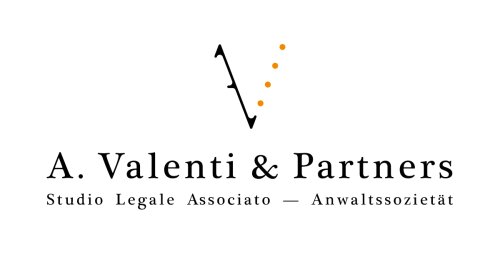Best Collaborative Law Lawyers in Bolzano
Share your needs with us, get contacted by law firms.
Free. Takes 2 min.
Free Guide to Hiring a Family Lawyer
List of the best lawyers in Bolzano, Italy
About Collaborative Law in Bolzano, Italy
Collaborative Law in Bolzano, Italy, is an innovative approach that focuses on resolving legal disputes outside of the courtroom in a cooperative, constructive manner. It is particularly utilized in family law disputes, including divorce and custody arrangements. This method employs a team-oriented problem-solving strategy where both parties, with their respective lawyers, work together to reach an agreement that satisfies both sides. By avoiding litigation, Collaborative Law aims to minimize hostility and provide a more amicable resolution process.
Why You May Need a Lawyer
There are several situations where seeking legal counsel in Collaborative Law can be beneficial:
- If you are going through a separation or divorce and want to avoid the adversarial nature of courtroom procedures.
- When both parties wish to maintain control over the outcome rather than leaving decisions up to a judge.
- If you seek a private and confidential method to resolve disputes, as opposed to public court hearings.
- When you wish to preserve a respectful relationship, especially when children and long-term co-parenting arrangements are involved.
- To potentially save time and legal costs in comparison to traditional litigation.
Local Laws Overview
In Bolzano, the application of Collaborative Law is impacted by both national Italian laws and regional norms. Key aspects include:
- Family Law Framework: Italian family law provides the basis for agreements concerning property division, child custody, and support arrangements.
- Legal Recognition: While Collaborative Law agreements must ultimately comply with Italian laws, the process itself is recognized as a valid method for dispute resolution.
- Cultural Considerations: Multilingual settings and diverse cultural backgrounds in regions like Bolzano may influence negotiation styles and necessary accommodations during the process.
- Privacy Concerns: Both local and national standards on privacy ensure that all discussions and agreements remain confidential.
Frequently Asked Questions
What is the primary difference between Collaborative Law and traditional litigation?
Collaborative Law emphasizes voluntary negotiation and problem-solving outside of court, whereas traditional litigation involves parties opposing each other in a courtroom setting.
Who are the key participants in a Collaborative Law process?
The primary participants include the parties involved in the dispute, their respective lawyers, and sometimes other professionals like financial advisors or child specialists as needed.
Is the agreement reached through Collaborative Law legally binding?
Yes, any agreement reached is documented and can be made legally binding after review and approval by a court, ensuring its enforceability under Italian law.
Can Collaborative Law be used for disputes other than family law?
While it is predominantly used in family law cases, Collaborative Law can also be applied to a variety of civil disputes, including business conflicts and real estate matters.
What happens if the Collaborative Law process breaks down?
If an agreement cannot be reached, parties may choose to pursue resolution through traditional litigation. However, they must typically hire new lawyers for court procedures.
How long does the Collaborative Law process typically take?
The duration of the Collaborative Law process varies depending on the complexity of the case but generally is shorter than litigation due to its cooperative nature.
Is confidentiality really assured in Collaborative Law?
Yes, all discussions and materials in the Collaborative Law process are confidential, similar to mediations, and cannot be disclosed without permission.
Are Collaborative Law lawyers specially trained?
Yes, lawyers participating in Collaborative Law need specialized training to effectively facilitate cooperative negotiations and guide the process constructively.
What costs are involved in Collaborative Law?
While it depends on the complexity of each case, generally the cost may be lower than litigation due to shorter timelines and fewer legal procedures involved.
Can I switch to Collaborative Law if I've already started litigation?
Yes, parties can mutually agree to halt litigation proceedings and opt for Collaborative Law at any stage, provided both sides are willing to participate cooperatively.
Additional Resources
To further explore Collaborative Law, the following resources can be insightful:
- Ordine degli Avvocati di Bolzano: Offers comprehensive details about lawyers who specialize in Collaborative Law within the region.
- The Italian Collaborative Law Association: Provides education and information to both legal professionals and the public about the benefits of Collaborative Law.
- Family Mediation Centers: These centers often work in conjunction with collaborative lawyers to support the family dispute resolution process.
Next Steps
If you find yourself in need of legal assistance within the realm of Collaborative Law, consider the following steps:
- Research and compile a list of lawyers in Bolzano who specialize in Collaborative Law.
- Schedule consultations to discuss your situation and evaluate which lawyer is the best fit for your needs.
- Gather necessary documentation and information related to your case to facilitate a smooth process with your chosen lawyer.
- Be prepared to approach the process with an open mind, aiming for cooperative and constructive dialogue.
- Regularly communicate with your lawyer for updates and guidance throughout the process.
Lawzana helps you find the best lawyers and law firms in Bolzano through a curated and pre-screened list of qualified legal professionals. Our platform offers rankings and detailed profiles of attorneys and law firms, allowing you to compare based on practice areas, including Collaborative Law, experience, and client feedback.
Each profile includes a description of the firm's areas of practice, client reviews, team members and partners, year of establishment, spoken languages, office locations, contact information, social media presence, and any published articles or resources. Most firms on our platform speak English and are experienced in both local and international legal matters.
Get a quote from top-rated law firms in Bolzano, Italy — quickly, securely, and without unnecessary hassle.
Disclaimer:
The information provided on this page is for general informational purposes only and does not constitute legal advice. While we strive to ensure the accuracy and relevance of the content, legal information may change over time, and interpretations of the law can vary. You should always consult with a qualified legal professional for advice specific to your situation.
We disclaim all liability for actions taken or not taken based on the content of this page. If you believe any information is incorrect or outdated, please contact us, and we will review and update it where appropriate.











